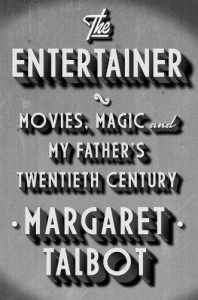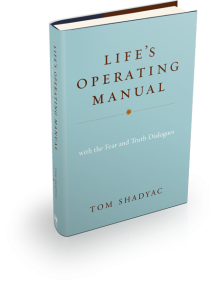Interview: Rama Burshtein and Hadas Yaron of “Fill the Void”
Posted on June 3, 2013 at 2:23 pm
“Fill the Void” is an Israeli film with a rare, intimate, and very sympathetic portrayal of a very observant Orthodox Jewish community. It is the story of a young woman, still in her teens, who is under pressure to marry the husband of her sister, who died in childbirth. If this was an American movie, it would be about the girl’s rebellion. But this is a far more complex, layered, sensitive exploration of the girl and her world, and therefore a much more fascinating story. The lead role is played by Hadas Yaron and the writer-director is an Orthodox woman born in America and raised in Israel, named Rama Burshtein. We met at a hotel in Washington to talk about the movie.
What makes a good marriage?
RB: You’re good. What makes a good marriage? This is not a quite popular view I would say but I think it’s about defining men and women and knowing how they’re different. Okay, this is how it works for me. I need my husband to be a little bit more, for me to hold more, to hold that passion…to feel that sexiness. This is what I need. He needs to be a little more open and it’s me making that. I have to make him want me. Like especially if I’m like dominant and a strong person than I really have to work hard to make him more than me. In a deeper way. He’s got the stamina. I know it is so not popular and some want to crucify me for saying that because it’s very not feminist to say. For me, it’s only about being in love and being passionate so I don’t care about being equal. I really care about really liking him for the rest of my life you know and really being attracted to him and that he’s going to be the center of my life. It doesn’t mean I don’t do other things, I’m sitting here and yet when I ever, ever have to make a choice it will be him. It will always be him.
Okay, and what about you, Hadas? What do you think makes a good marriage?
HY:Well, I’m not married. It’s funny because I’ve been listening to Rama. I have a boyfriend and the words you said really stayed in my head, the words you said to me about how God’s journey is planned in relationships and I really remember that. The whole thing with two weeks of not touching and then two weeks of this and so holding it and bringing it back. I remember I told him; maybe we can do that, like for one week to be a bride again after being separate. I think it’s about being real with him and so that’s hard sometimes…to be really exposed and then feel that the other person really gets you.
One part of the most striking parts of the movie are these very structured “dates” where the couple essentially has just one meeting to decide if they can spend their lives together. There’s this plate of cookies that no one ever touches.
RB: No one ever touches it. You know if she asks her mother for more time, she will have more. It’s about seeing if there’s chemistry and if you can go to the next date. Actually, the first one is just to know if you can go to the next one. And, by us we come and sit for three hours or four hours and some of that’s him being a man for the rest of my life and her being the woman for him for the rest of his life. They’re both tuned in on it and the concentration is on that. So, everything he says is very important and everything she says is critical and the concentration is so strong. I got married like this. When I sat with him for the first time every answer he gave was to tell me if he could be there for me forever or not. It is amazing! It’s so strong that when you decide to get married you actually nourish it from that first meeting for a long time. Because like I said everything is there now it’s just puppy love but you felt everything there and you know what kind of home you can have. How do you see life but in such a way you say that’s all I ever wanted, for him to really want me forever from the first time. This is it! This is what you want.
Did you intend the final scene of the film to be open to interpretation?
RB: The weird thing about this film is that people read it the way they read it. Some people think her mother pressures her to marry her late sister’s husband, but the mother never pressured her. She speaks to the father. She speaks to the matchmaker. The only time she speaks about it is when the mother and the father are in front of her telling her the offer and the father doesn’t want it. We get the feeling that she’s pressured but there was not real pressure on her. People really read into something that is not there.
I think she knew what her mother wanted.
RB: Wanted is not pressure. Wanted is fine. For me it was really intentional that she will not pressure her, that she would keep her feelings to herself. The mother is in sorrow. She is mourning and she is trying to do her best and yet she does not really pressure. The only one that she is a bit manipulative with is her husband, which is always what women do to their husbands. She tells him “You have to ask her, I would die to go.” This is what I believe. I believe that everything at the end comes together and you see it in life. There’s like a big plan because it’s really far out from what we want to feel. It happens with feelings and emotions and then suddenly you are realizing things…it’s like combining with the big plan. The big plan was for her to marry him. Something had to be done…an offer had to be made. The mother had to really push the father for everyone to actually get there. First of all her husband is gorgeous and sexy…he’s there…he’s a man…why not? In terms of the film of course.
And, then she’s beautiful and young and everything and all the complications and intentions are strong to say a true love story is not that complicated…and at that moment at the end where you don’t know what you’re feeling and you’re comfortable because it combines everything. It’s easy for us to say just make it like a love scene. It’s how you feel and wanting and not knowing where you’re going and the whole thing together …this is real. It doesn’t mean it’s not about love. It’s just a little different language, which is a true language because it is the way you experience it in your life. Not Hollywood.
The last shot is a shot that says see the real thing…it’s real. You can go all the way with everything in it. Sometimes you use too many emotions and then the viewer doesn’t see all that. They didn’t see the feel and they see the confusion. They just went with her being excited towards that night.
So, how do you talk to Hadas about portraying all of that, without any lines of dialogue?
RB: I think that when we did the film and we got prepared for it the one thing I knew is that it’s going to be a mixture of feelings of emotions and we were talking a lot about it…about trying to hold two different emotions together. On the one hand you want that aand it’s not just doing that it’s just jumping from one emotion to another. Right? We talked a lot about that. For me, this is being Jewish. A good example for that is when I just got into the religion a friend of mine was about to marry her eldest son in the evening and in the morning her mother passed away very suddenly. So, about 12 o’clock in the afternoon we buried her mom and then 7 o’clock that night her son got married. And, I was looking at her because she was just for the ceremony then she had to go but, that moment he got married she was there, she was happy and like a few hours ago she was really sad because her mom in a very surprising way just passed away. And, looking at that and looking at her, you think this is incredible…you can just jump from those feelings. This is from me being Jewish…really this is Judaism to be able to hold two things together.
And, what do you want people to take away from the film?
HY: I guess it’s just about being real. That’s something I learned. It’s the most difficult place to get to…like the most real, deepest, and the best place to be.



